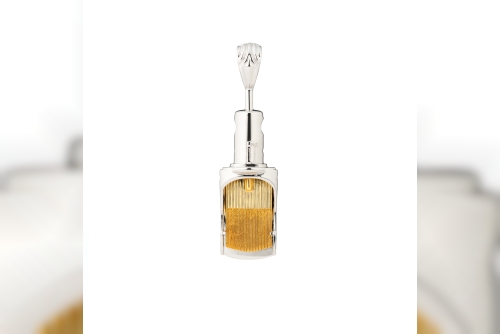In any electrical installation, ensuring the safety and durability of cables is paramount. Whether it's protecting cables from external contaminants like water, dust, and chemicals, or safeguarding them from mechanical strain and damage, Brass and PVC glands serve as essential components in cable management. These glands help create a secure and reliable connection between electrical cables and enclosures, contributing to the overall safety and performance of the electrical system.
The versatility and strength of brass and PVC glands make them widely used in various industries, from residential to industrial and commercial applications. This article explores the importance of these glands, highlighting their types, benefits, features, and applications, to guide you in selecting the best solution for your specific requirements.
What Are Brass and PVC Glands?Brass glands and PVC glands are fittings that secure cables to electrical equipment, junction boxes, and enclosures. They are designed to ensure that cables are properly terminated, offering protection against environmental factors like moisture, dust, and chemical exposure. The primary function of a gland is to provide a secure seal and strain relief to the cable, preventing potential damage and ensuring the integrity of the electrical connection.
Brass glands are made from a corrosion-resistant metal, known for its durability and robustness, making them ideal for use in demanding, heavy-duty environments.PVC glands, on the other hand, are made from polyvinyl chloride (PVC), a more affordable and lightweight material that is ideal for general-purpose, lower-risk applications.Types of Brass and PVC GlandsThe diverse range of brass and PVC glands available allows you to choose the most suitable one depending on the specific application, type of cable, and environmental conditions. Here’s a breakdown of the common types of glands available:
1. PG Glands (Protection Glands)PG glands are one of the most commonly used types of glands and are designed for general-purpose cable sealing. These glands prevent the ingress of dust, moisture, and other contaminants into electrical enclosures. Brass PG glands provide greater durability and are more suitable for high-stress environments, while PVC PG glands are lighter and more cost-effective for less demanding applications.
PG glands are available in various sizes to accommodate different cable types and provide a tight seal for added protection. They are ideal for residential, commercial, and industrial electrical installations.
2. SWA (Steel Wire Armoured) GlandsSWA glands are specially designed for use with steel wire armoured cables, which are typically used in outdoor or underground installations. These cables are built with additional protection to prevent damage from mechanical forces. Brass SWA glands are the preferred choice for these installations due to their ability to handle the added mechanical stress and provide a secure connection. PVC SWA glands can also be used for lighter-duty applications where corrosion resistance is not as critical.
These glands ensure that the steel armoring of the cable is properly terminated, preventing any grounding issues and protecting against external forces. Brass SWA glands also provide a reliable seal and help maintain the overall integrity of the electrical system.
3. Explosion-Proof GlandsIn hazardous environments where flammable gases or dust are present, explosion-proof glands are essential for preventing sparks or heat from igniting the surrounding atmosphere. Brass explosion-proof glands are the ideal choice for such applications because of their robust construction and corrosion resistance. They ensure that the cable’s electrical connection remains safe, even in the presence of dangerous substances.
Explosion-proof glands are commonly used in oil refineries, chemical plants, and offshore drilling operations, where safety is of utmost importance. Although PVC explosion-proof glands are available, they may not offer the same level of protection as their brass counterparts in high-risk environments.
4. Outdoor GlandsOutdoor installations require glands that can withstand exposure to harsh weather conditions, including rain, UV radiation, and extreme temperatures. Brass outdoor glands are highly effective in protecting cables against these environmental stresses, making them ideal for use in outdoor electrical systems, including street lighting, power distribution, and solar energy systems.
For installations in environments where the exposure is not as extreme, PVC outdoor glands are a more affordable solution, offering adequate protection against moisture and dirt. They are often used for residential or light commercial outdoor applications.
Advantages of Brass and PVC GlandsWhen selecting brass or PVC glands, understanding the unique benefits of each material will help ensure the right choice for your specific needs. Below are the advantages of both:
Advantages of Brass GlandsCorrosion Resistance: Brass glands are highly resistant to corrosion, making them suitable for use in marine, industrial, and chemical environments where exposure to corrosive substances is common.Durability: Brass is a strong, durable material that can withstand harsh conditions, high mechanical stress, and physical impact, ensuring a long-lasting and reliable connection.High-Temperature Resistance: Brass glands can handle high temperatures, making them ideal for electrical systems exposed to heat or fire hazards, such as industrial machinery and power plants.Mechanical Strength: Brass provides excellent mechanical strength, offering robust protection for cables in challenging environments that may involve physical stress or movement.Fire Resistance: As a naturally fire-resistant material, brass glands add an extra layer of safety in high-temperature installations.Advantages of PVC GlandsCost-Effective: PVC glands are significantly cheaper than brass glands, making them the ideal choice for budget-conscious installations or less demanding applications.Lightweight: PVC glands are easier to handle and install, reducing labor costs and simplifying the overall installation process.Moisture and Chemical Resistance: While not as resistant to extreme conditions as brass, PVC glands provide adequate protection against moisture, water, and mild chemicals, making them suitable for residential and commercial applications.Ease of Installation: PVC glands are typically simpler to install due to their lightweight and flexible construction, making them a good choice for DIY projects or less complex installations.Electrical Insulation: PVC is an insulating material, which makes PVC glands beneficial in applications where electrical insulation is needed to protect against shock and short-circuits.How to Choose Between Brass and PVC GlandsChoosing between brass and PVC glands depends on several factors related to the installation environment and the level of protection required. Below are some key considerations to help guide your decision:
1. Environmental ConditionsThe environment plays a significant role in determining the right gland. Brass glands are ideal for harsh environments where corrosion, high temperatures, or physical stress are prevalent. These environments include marine, industrial, chemical, and outdoor locations. PVC glands, however, are best suited for less demanding environments, such as residential or light commercial settings, where the risk of exposure to extreme conditions is minimal.
2. Cable Type and Installation RequirementsThe type of cable being used will also affect your choice of gland. SWA glands are necessary for steel wire armoured cables, while PG glands are more suitable for standard cables. The gland should be compatible with the specific cable type to ensure a secure, reliable connection and optimal performance.
3. Budget ConsiderationsFor installations on a tight budget, PVC glands offer a more affordable solution without sacrificing too much on functionality. Brass glands, though more expensive, offer greater protection and durability, making them a worthwhile investment for high-risk or long-term projects.
4. Protection Level NeededConsider the level of protection required. If your installation involves hazardous materials or explosive environments, brass explosion-proof glands are the best choice. For everyday use in general-purpose environments, PVC glands provide sufficient protection at a lower cost.
5. Installation EasePVC glands are lighter and easier to install, reducing installation time and labor costs. On the other hand, brass glands may require more effort to install but provide enhanced strength and durability for challenging installations.
ConclusionBrass and PVC glands are indispensable components for ensuring the safety, durability, and performance of electrical systems. By providing effective protection against moisture, dust, and mechanical damage, they help maintain the integrity of cables and reduce the risk of system failures. Brass glands are ideal for demanding, high-risk environments where corrosion, heat, and mechanical stress are factors, while PVC glands offer a lightweight, cost-effective solution for residential and commercial applications.
By understanding the different types, advantages, and applications of brass and PVC glands, you can make an informed decision to ensure the longevity and security of your electrical installations.
For more information on high-quality Brass and PVC glands and other electrical accessories, visit Cabex India.












